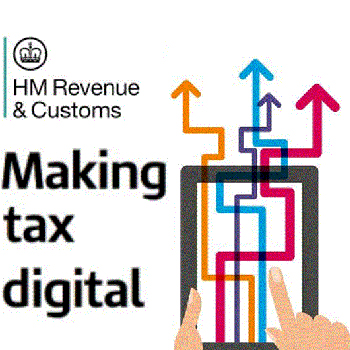Missing your tax deadline can be stressful, but don’t panic! The important thing is to act quickly to minimise penalties and get back on track. As an accountancy firm, we’re here to help guide you through the steps you need to take to make things right.
1. File your tax return ASAP
First things first, and the most crucial part is to file your tax return as soon as you can. While you may still face penalties for late filing, submitting your return promptly can help reduce the overall impact. Filing online is typically quick and easy, but double-check everything before submitting to avoid any mistakes that could complicate things further.
2. Pay any tax due
Once your tax return is submitted, your next priority is paying any tax due. HMRC will charge interest on any unpaid tax, so the sooner you pay, the less interest you’ll accumulate as it will quickly add up. It’s a good idea to check your tax calculation and ensure that you’re paying the correct amount.
Can’t Pay the Full Amount?
If you’re unable to pay the full amount right away, don’t worry. HMRC may allow you to set up a Time to Pay arrangement, which lets you pay the amount owed in instalments. The earlier you arrange this, the better, as it helps to prevent additional penalties and interest.
3. Understanding late filing penalties
If you’ve missed your tax return deadline, you’ll face automatic penalties. Initially, you’ll be charged a £100 late filing penalty. If the return remains unfiled for more than 3 months, additional penalties will apply. If you owe tax, you’ll also incur late payment penalties, along with interest on the unpaid amount, starting from 1st February. The longer the payment remains overdue, the higher the penalties and interest will be.
4. Can you appeal the penalties?
If you have a valid reason for missing the deadline, you may be able to appeal the penalties. HMRC considers your situation on a case-by-case basis, and if they accept your appeal, they could waive or reduce the penalties.
Common examples of reasonable excuses include:
- Serious illness or injury
- Death of a close family member
- Major system failures (e.g. problems with the HMRC’s online filing system)
- Natural disasters or other significant personal issues
If you think you have a reasonable excuse, you’ll need to provide supporting evidence when appealing, so make sure to keep any relevant documentation.
5. Contact HMRC
It’s always a good idea to get in touch with HMRC if you’ve missed the deadline and you’re worried about penalties. They may be able to help, and in some cases, they can help you set up a payment plan. It’s better to reach out sooner rather than later, as this shows you’re taking responsibility and trying to comply with your tax obligations.
6. Consider Working with an Accountant
If you’re feeling overwhelmed or unsure of where to start, working with an accountant can be a huge relief. We can help you:
- Navigate the complexities of filing your tax return and meeting deadlines
- Ensure compliance with UK tax laws
- Minimise penalties and interest through expert advice
- Help with tax planning to avoid future issues
Having a professional on your side can give you peace of mind and make sure everything’s handled correctly and efficiently.
If you missed your tax deadline, the most important thing is to act quickly. The sooner you file, pay, and address any penalties, the better.
And if you need help along the way, don’t hesitate to reach out to us here https://future-cloud.co.uk/get-in-touch/ – Your friendly, forward-thinking accountants.
Email us at info@future-cloud.co.uk or give us a call on 01636 337069.
Head over to our social media for updates, news, and more.


